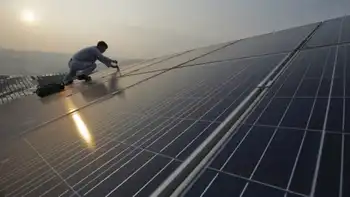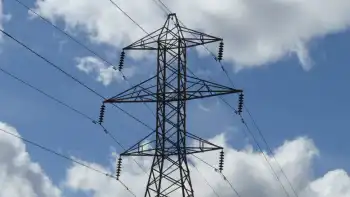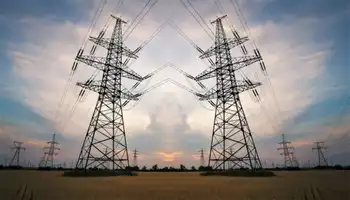Vermont boosts payoff for renewable energy
By Associated Press
High Voltage Maintenance Training Online
Our customized live online or in‑person group training can be delivered to your staff at your location.

- Live Online
- 12 hours Instructor-led
- Group Training Available
The state Public Service Board, responding to legislation passed earlier this year, issued an order setting up a system of contracts in which renewable energy developers can get a fixed price for their power for 20 years.
Prices range up to 30 cents per kilowatt-hour for solar power projects — a level that critics decry as likely to drive up rates and hurt the economy. Supporters say such a guarantee is needed to get investors to step forward and build renewable energy projects.
"We support renewables to round out the state's energy future. And we hope the feed-in tariff will result in growth of renewables at a faster rate," said Stephen Wark of the Department of Public Service, which manages energy policy for the administration of Gov. Jim Douglas.
"But we're a bit concerned at the impact on rates that this could have," he said. The program is capped at 50 megawatts. Wark said his department has estimated if projects totaling that amount are built under the price guarantees, it could raise electric rates by 2 to 3 percent.
Guaranteed rates are lower for wind power, small hydroelectric and biomass power, but still higher than the 4 to 6 cents per kilowatt-hour utilities are paying at wholesale for electricity generated with nuclear and fossil fuel-based energy.
The new program "guarantees contract prices based upon the actual present-day cost of building the project," said Rep. Tony Klein, D-East Montpelier, chairman of the House Natural Resources and Energy Committee and a key author of the legislation.
The impact on rates will be limited by the relatively small scope of the program, Klein said. The 50 megawatt program represents about 4 percent of Vermont's total power demand. Individual projects are capped at 2.2 megawatts.
That's much bigger than the rooftop solar power systems typically installed by homeowners. Klein said the target market will be commercial developers. They'll have to go through a rigorous permitting process at the Public Service Board and with ISO-New England, the regional power dispatch agency that acts as a traffic cop directing the movement of power from generators onto the grid.
Other states, including Hawaii and Oregon, and municipalities, including Gainesville, Fla., have established or are moving toward such systems of guaranteed prices for renewable developers. The efforts follow similar programs in European countries including Germany and Spain.
Klein argued that the guaranteed rates are needed to get the state more reliant on renewable energy.
"The goal is we want these built. In order to get them built you need to set a rate based on the actual cost of the project," he said.
There appears to be a lot of interest among renewable energy developers. A recent series of meetings at which the Public Service Board was well attended by them. "There were a ton of developers in the room, chomping at the bit," Klein said.
David Holey, a senior partner with Carbon Green Energy Partners, a developer based in Orange County, Calif., who has been in Vermont in recent days getting the lay of the land, said the new guarantees can make the economics of solar power work in Vermont.
One impediment remains, he said: Unlike some other states, Vermont does not exempt solar equipment from the state sales tax. "For a 2.2 megawatt system, the sales tax is about $500,000, Holey said.











